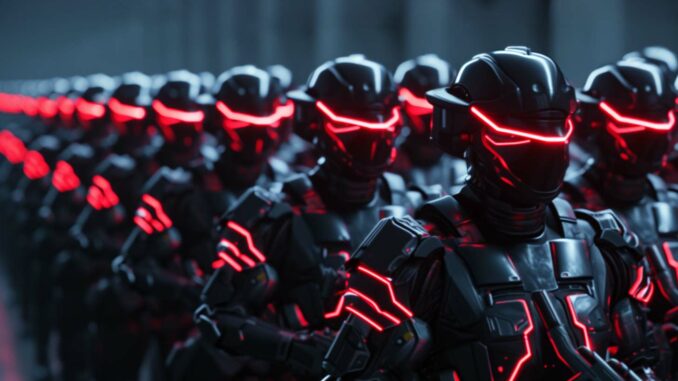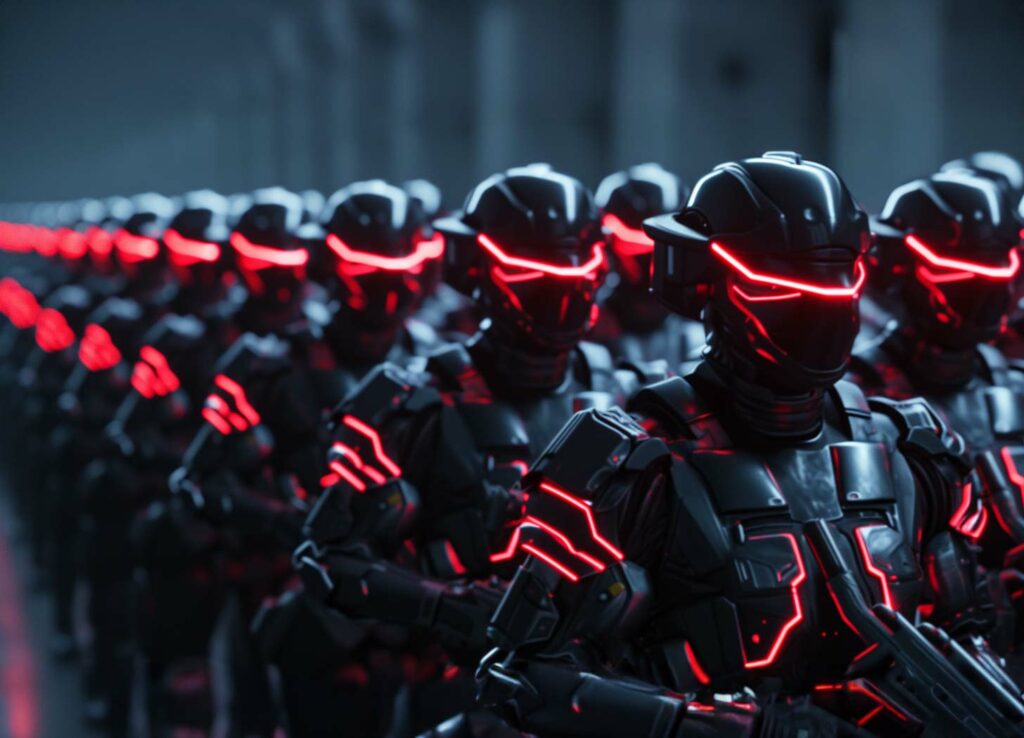
Discover the advances in Russian military AI, its challenges in the face of sanctions and its implications for global security.
In brief
Russia, led by Vladimir Putin, sees artificial intelligence (AI) as crucial to its future national security. This vision has led to intense research into AI-based military technologies. However, international sanctions imposed following the invasion of Ukraine have had a significant impact on these efforts. This article explores Russia’s progress in this area, the challenges faced as a result of the sanctions, and the goals of Russian military leaders regarding the use of AI on the battlefield.
For several years, Russia has been striving to develop artificial intelligence (AI) technologies for military applications. This approach is strongly supported by the country’s highest authorities, notably Vladimir Putin. AI is seen as a key element in ensuring national security and maintaining Russia’s strategic position on the world stage. This article examines the advances made, the impact of international sanctions on these efforts, and Russian strategies for using military AI.
Technological advances in military AI
Russia has invested heavily in the development of AI for military use. Several projects have been launched to integrate AI into weapons systems, autonomous vehicles, and intelligence systems. For example, the Russian army has tested autonomous drones capable of carrying out reconnaissance and attack missions without direct human intervention. In 2021, Russia also announced the development of an autonomous tank, the Uran-9, equipped with AI systems for reconnaissance and attack. However, the latter has encountered a number of technical problems, showing that the road to operational use of these technologies is still a long one.
Impact of international sanctions
The sanctions imposed on Russia after the invasion of Ukraine have considerably slowed progress in military AI. These sanctions have limited Russia’s access to advanced technologies and essential components, such as advanced semiconductors and microprocessors, produced mainly in the USA and Europe. As a result, Russia has had to turn to in-house solutions or partners such as China to bridge this technological gap. Nevertheless, this increased dependence limits Russia’s ability to develop cutting-edge AI technologies at the same pace as its Western adversaries.
Russian military objectives and strategies with AI
Russian military leaders see AI as a means of compensating for certain conventional weaknesses in their armed forces. AI could be used to improve weapons accuracy, optimize logistics and strengthen intelligence capabilities. For example, using AI to rapidly analyze surveillance and intelligence data could provide a decisive advantage on the battlefield. In addition, AI can play a crucial role in electronic warfare and cyberdefense, two areas in which Russia is already very active.

Advantages and disadvantages of military AI
The use of military AI offers significant advantages. It can improve the efficiency of operations, reduce casualties, and enable faster, more accurate decision-making. For example, autonomous drones can carry out reconnaissance missions in enemy territory without risk to soldiers. However, military AI also entails risks. Over-reliance on technology can leave systems vulnerable to cyber-attacks. What’s more, AI errors in complex, unpredictable situations can have disastrous consequences, such as accidental strikes on civilian targets.
Consequences of the use of military AI
The adoption of AI in the military domain has profound implications. From a strategic point of view, it could trigger a technological arms race, pushing other nations to develop their own military AI capabilities. Ethically, the use of autonomous weapons systems raises questions about responsibility and human control. Furthermore, the integration of AI into military operations could change the nature of warfare itself, making conflicts faster, more complex, and potentially more destructive.
Future prospects
Despite the challenges, Russia continues to pursue its military AI ambitions. In the future, efforts are likely to focus on improving existing technologies and reducing dependence on foreign technologies. Collaboration with partner countries such as China could play a key role in these developments. At the same time, Russia will also need to navigate the ethical and strategic implications of using military AI to maintain a balance between technological progress and responsibility.
The development of military AI in Russia is a rapidly evolving field, marked by notable advances but also significant challenges. International sanctions have slowed progress, but have not halted Russia’s determination to integrate AI into its military capabilities. The future of Russian military AI will depend on its ability to overcome technological and ethical obstacles, while meeting national security requirements in a complex geopolitical context.
War Wings Daily is an independant magazine.